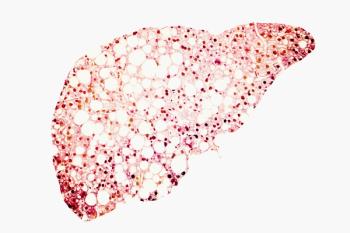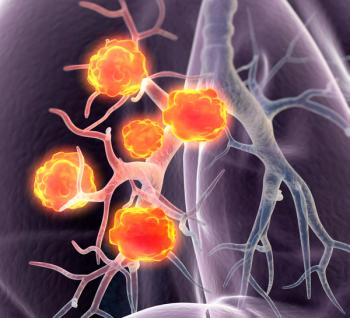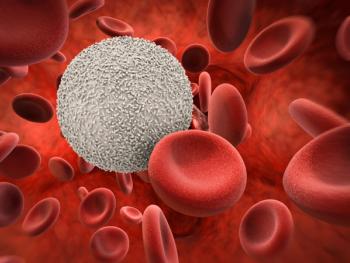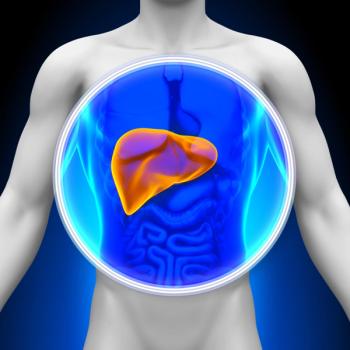
Several factors among cancer survivors, such as rural residence, low income, and low education were found to be independently associated with a higher risk of developing new-onset cardiovascular disease.

Your AI-Trained Oncology Knowledge Connection!


Hayley Virgil is a senior editor with CancerNetwork. When she isn't traveling to conferences and championing health equity in the oncology space, she can be found hiking, foraging wild plants, gardening, sewing ballgowns, practicing embroidery, or playing video games.

Several factors among cancer survivors, such as rural residence, low income, and low education were found to be independently associated with a higher risk of developing new-onset cardiovascular disease.

The FDA has expanded the label for cetuximab/encorafenib for the treatment of patients with previously treated BRAF V600E–positive metastatic colorectal cancer.

A subset of patients with metastatic uveal melanoma achieved promising responses after treatment with entinostat and pembrolizumab.

Combination everolimus/letrozole yielded a higher progression-free survival over letrozole alone in a population of patients with hormone receptor (HR)–positive, ERBB2-negative advanced breast cancer.

Patients with advanced hepatocellular carcinoma who received prior treatment with sorafenib appear to benefit from treatment with pembrolizumab and best supportive care.

By not including race as part of the Chronic Kidney Disease-Epidemiology Collaboration equation, Black patients with cancer were more likely to not receive treatment for their disease.

Patients with mantle cell lymphoma who experience early relapse after being treated with either intensive or non-intensive frontline therapy are more likely to experience interior survival.

Patients with ROS1-positive non–small cell lung cancer may derive benefit from being treated with ROS1/NTRK inhibitor taletrectinib.

Patients with metastatic castration-resistant prostate cancer with or without homologous recombination repair gene mutations may derive benefit from olaparib and abiraterone acetate, according data from the phase 3 PROpel trial.

Patients with relapsed/refractory unresectable or metastatic melanoma may derive benefit from alrizomadlin, which has received a fast track designation from the FDA.

Patients with chronic graft-versus-host disease who have received prior therapy can now receive treatment with ruxolitinib following its approval by the FDA.

Topline findings from the phase 2 KRYSTAL-1 study indicated that adagrasib may hold promise in patients with KRAS G12C–mutant non–small cell lung cancer.

Ficlatuzumab, which received a fast track designation from the FDA, may provide benefit to patients with relapsed or recurrent head and neck cancer.

Findings from the phase 3 COSMIC-311 trial led to the approval of cabozantinib in patients with radioactive iodine–refractory locally advanced or metastatic differentiated thyroid cancer.

Patients with advanced renal cell carcinoma experienced improvements in both progression-free and overall survival after being treated with first-line immunotherapy vs sunitinib, although the benefit is yet to be determined in those with favorable-risk disease.

The first patients with human papillomavirus 16–positive oropharyngeal cancer have been dosed with ISA101b, which was given a fast track designation by the FDA, as part of a phase 2 study.

Patients with newly diagnosed multiple myeloma experienced rapid responses and notable rates of minimal residual disease negativity following minimal residual disease–based consolidation therapy with daratumumab, carfilzomib, lenalidomide, and dexamethasone.

Epcoritamab monotherapy yielded positive results in patients with relapsed/refractory B-cell non-Hodgkin lymphoma and should be studied further, according to investigators.

The NovoTTF-200T System was given a breakthrough designation by the FDA as treatment strategy that may work in conjunction with bevacizumab and atezolizumab to treat patients with advanced liver cancer.

Clinical decision-making based on minimal residual disease may be associated with improved therapy satisfaction and optimized post-remission treatment for patients with intermediate-risk acute myeloid leukemia.

Findings from the phase 2 NRG-LU001 trial indicated that the addition of metformin to radiotherapy did not improve survival outcomes in patients with non–small cell lung cancer.

After implementing disparity and demographic reporting in acute leukemia clinical trials, investigators did not report an increase in diverse trial participants.

Elizabeth Comen, MD, discusses how she balances her love of dance with both her family and her career as a breast cancer oncologist.

Preliminary findings indicate that P-PSMA-101, a CAR T-cell therapy, may be efficacious in patient with metastatic castration-resistant prostate cancer.

Pediatric patients with low-risk acute lymphoblastic leukemia may be able to omit treatment with vincristine and dexamethasone pulse therapy after the first year of treatment.

Autologous hematopoietic stem-cell transplantation appears to improved survival compared with interferon alfa maintenance therapy for patients with previously untreated mantle cell lymphoma.

The risk of infection during induction chemotherapy decreased among patients with acute myeloid leukemia treated with romyelocel-L.

Zanubrutinib has been approved by the FDA for the treatment of patients with Waldenströms macroglobulinemia based on the results of the phase 3 ASPEN trial.

New diagnoses of common cancer types declined significantly during the first year of the COVID-19 pandemic.

A new set of guidelines for utilizing radiation therapy in adult patients with soft tissue sarcoma has been published by the American Society for Radiation Oncology.